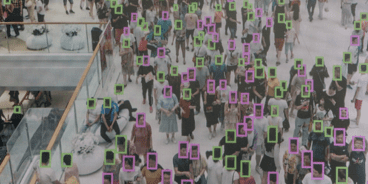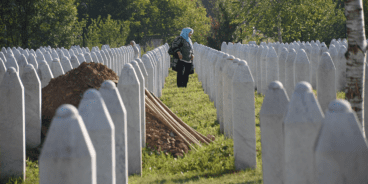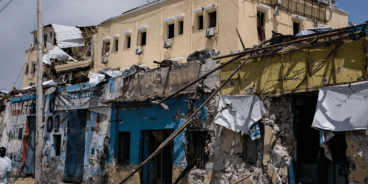
Killer SMS: Incitement and the Kenyan Elections
Op-ed published by Dr. Simon Adams in the Huffington Post
Mass atrocities don’t just occur, they have to be organized and promoted. These days they can be instigated by something as simple as a text message or tweet.
At the Nuremburg Trials in 1946 Julius Streicher was sentenced to death for his role in the Holocaust. Streicher did not command a Nazi death camp, nor oversee mass executions on the Eastern Front. But Streicher was an unrelenting instigator and enabler of race murder. While he did not personally order the trains to Auschwitz, he was the founder of Der Sturmer, the Nazi’s most popular anti-Semitic newspaper. It is hard to imagine the Holocaust happening without the hate he assiduously cultivated.
Fifty years later Radio Mille Collines was to the Rwandan genocide what Der Sturmer was to the Holocaust. During 1994 Radio Mille Collines broadcast the names of Tutsi “cockroaches” and urged on the machete-wielding killers. “The graves are not yet full,” one DJ notoriously lamented, “who will help us fill them?” Over 800,000 people would be murdered, mainly with farm implements and improvised weapons, before the genocide ended.
The besieged commander of the tiny United Nations peacekeeping force in Rwanda, General Romeo Dallaire, pleaded for the international community to use military technology to jam the broadcast signal of Radio Mille Collines. His plan was considered expensive and a violation of Rwanda’s sovereignty. Radio Mille Collines stayed on the air.
Hate speech facilitates the transition from discrimination to extermination. It is partly for this reason that both the Rome Statute of the International Criminal Court and the Genocide Convention recognize incitement as a crime.
Next Monday, 4 March, Kenyans will vote in national, provincial and local elections. This will be the first national ballot since devastating ethnic violence tore across the country in the aftermath of the December 2007 presidential elections. The internecine violence – mainly between Kenya’s three largest ethnic groups – lasted two months and killed 1,133 people. More than 600,000 Kenyans were driven from their homes.
It took weeks of mediation by former UN Secretary-General Kofi Annan to find a way out of the crisis. Kenya nearly politically collapsed but a power-sharing arrangement was eventually negotiated. Afterwards Annan remarked that his role within the international community’s response had been guided by the Responsibility to Protect (R2P).
Adopted at the UN World Summit in 2005, R2P committed all the governments of the world to protect populations from genocide, war crimes, ethnic cleansing and crimes against humanity. It is primarily a preventive doctrine, but it also allows for a range of mediated or coercive measures if a state fails to live up to its sovereign responsibilities. Extinguishing the flames in Kenya was hailed as the first major example of “R2P in practice.”
In the aftermath of the 2007/8 conflagration four Kenyans were indicted by the International Criminal Court for directing the violence. One, Uhuru Kenyatta, is running for President next Monday. Another is a former popular Kalenjin radio broadcaster, Joshua Arap Sang, who is accused of using his position at KASS FM to foment ethnic attacks.
New technology also played a part. Text messages about “stolen elections” and calling on one group or another to “terminate” or “exterminate” ethnic rivals were widely circulated. A major telecommunications company sent out a bulk SMS urging peace, but these sentiments were overwhelmed by an avalanche of murderous messages.
Kenya has made remarkable progress since then. It has enacted significant constitutional reforms. It has also passed new laws to prohibit hate speech and regulate the means by which radio broadcasts, text messaging and social media can become tools for incitement.
Impressive Kenyan civil society organizations like Ushahidi have also emerged. During the 2007/8 crisis Ushahidi developed a following of more than 45,000 Kenyans who interacted via the internet and mobile phones to report and map ethnic attacks. A new Kenyan group, Umati, has also been formed to monitor and inhibit “dangerous speech” during the 2013 election.
With only days until voting begins, deep political tensions and bitter ethnic rivalries remain. Mass unemployment, intractable poverty and endemic corruption continue to fuel the deep distrust many Kenyans still feel towards their government and one another.
According to the United Nations, last year more than 400 Kenyans were killed and 112,000 displaced by deadly inter-communal violence. In the hard-hit Tana River delta, police were unable to stop months of sporadic “revenge attacks” between the Orma and Pokomo communities that claimed more than 150 lives. A junior minister was later charged with inciting the violence.
Although hate speech may have been curtailed, campaigning along ethnic lines remains the standard operating procedure of Kenyan politics. Speeches, radio broadcasts and text messages are being monitored, but Facebook and Twitter could present new opportunities for incitement should the election go badly.
The election on Monday 4 March should be a celebration of fifty years of Kenyan independence. But if the worst should recur, the international community must again come to the rapid assistance of the Kenyan government and help it uphold its Responsibility to Protect.
The world will be watching. But it should also be listening and reading its messages.
Related Content


Atrocity Alert No. 328: DR Congo, International Justice and Genocide Victims Day
